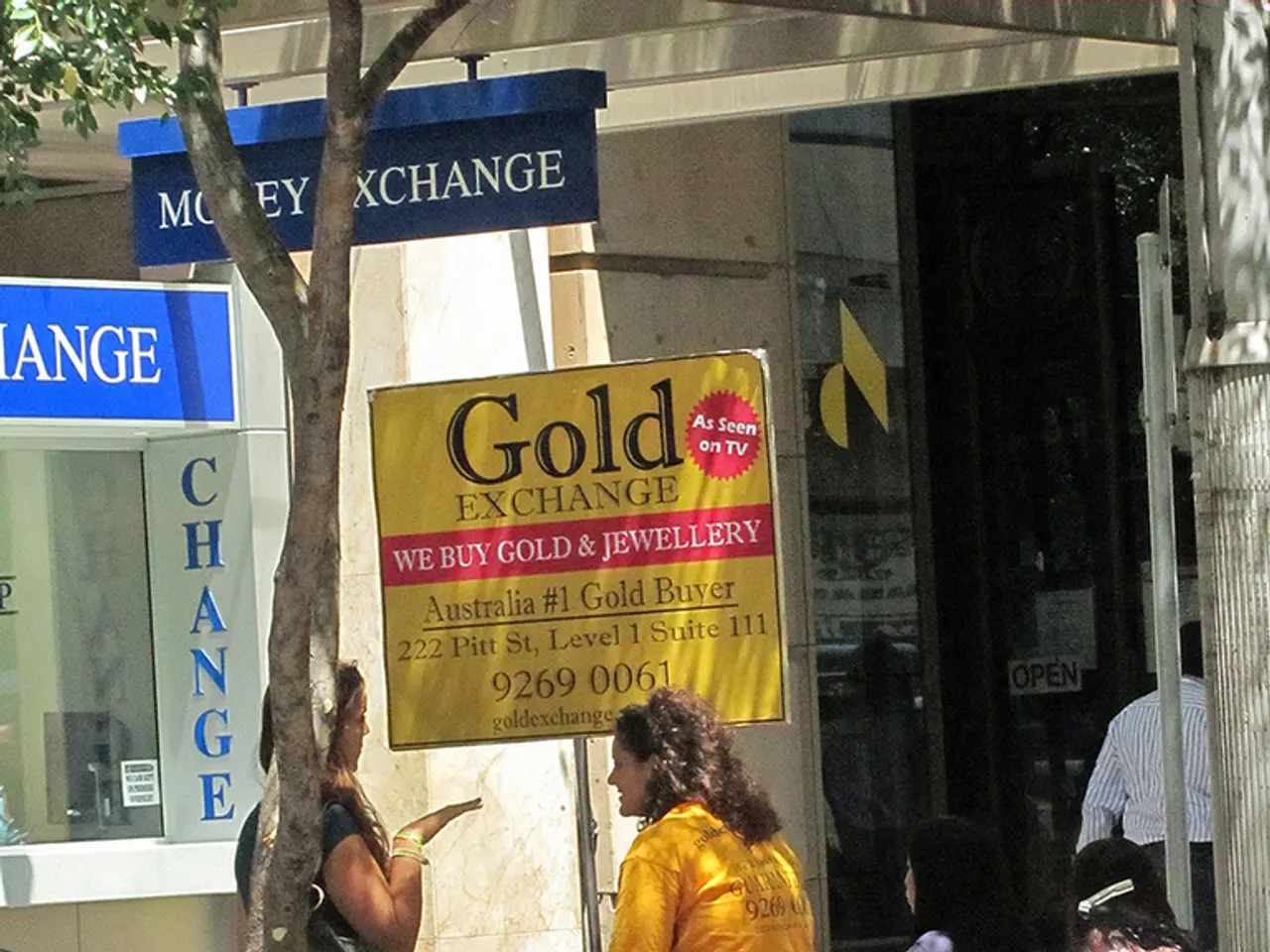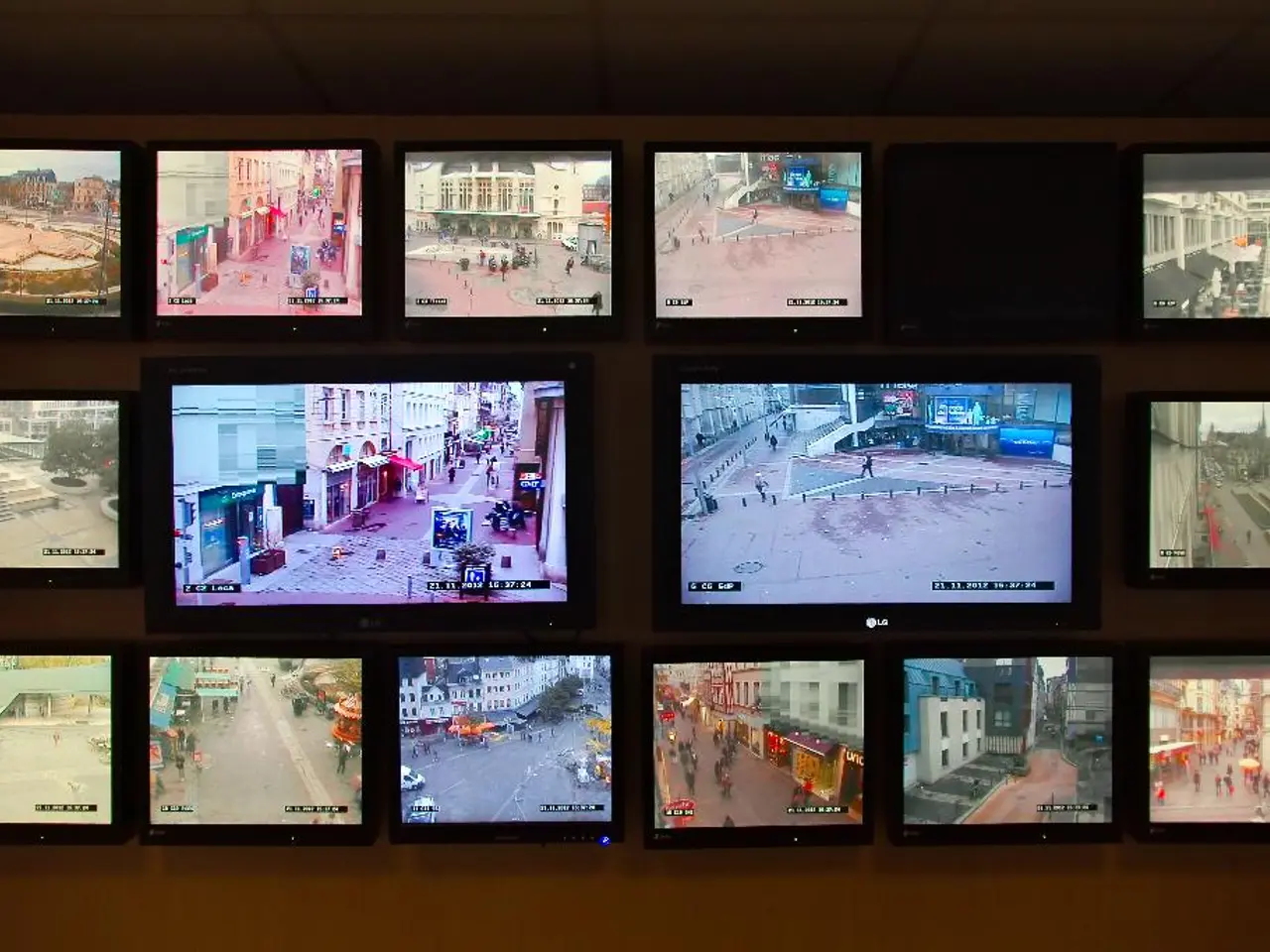The conundrum of accountability surrounding DePIN: A perspective
Let's dive into the world of decentralized networks, where the power lies in the hands of the people, not some centralized authority. In the realm of physical infrastructure, decentralization not only encourages global participation but also rewards those who contribute genuinely. But this grand idea brings its own issues – who's responsible when something goes south and no one's in charge?
Now, let's talk about AI that works for the people. Data curation DePIN (Decentralized Personal Identification Networks) is the key to unlocking a more comprehensive, people-centered AI. While decentralization is believed to offer financial freedom, our current crypto markets are anything but stable or decentralized. The wild crypto 'Bull Run' has seen the S&P 500 and Nasdaq log their worst quarterly performance since the 2020 COVID-19 pandemic, a volatility that's just as prevalent in the crypto world as financial and governmental institutions intertwine.
It's looking pretty shaky out there, folks. But chaos has always been a part of the crypto game, according to Satoshi Nakamoto, who warned about the risks of conventional currency and centralized control in Bitcoin's whitepaper. We've since taken the core principle of decentralization and applied it widely, from self-sovereign IDs to DeFi, DAOs, DePIN, and DeSci. However, we haven't always given equal weight to questions of responsibility, reliability, and repair – the gritty details that make systems work in the real world.
Now, onto the trickiest part of decentralization: accountability. It's empowering, sure, but it also raises some big questions: In a world without a boss, who's in charge when things go south? If monetary policies go awry, there's always a centralized entity to address the problem. But what about blockchain nodes or network decisions that need quick action? Remember The DAO incident of 2016, where crypto-lovers argued for weeks about whether to intervene after a hack drained a third of the funds from the decentralized autonomous organization built on Ethereum? Yep, accountability challenges in the world of decentralization are no joke, especially during a crisis.
And then there's the matter of DePINs and AI systems, which rely on oceans of data – quantity over quality, often. As projects race to scale, they put data collection ahead of data accuracy. Over time, networks may reward noise over signal. According to some DePIN projects, there are even dozens of nodes located on the mythical "Null Island" – a location that originated from location data errors in GPS systems. Freaky, right?
Even when GPS location data is accurate, there are significant vulnerabilities that are easily exploited. Look no further than the subreddit dedicated to spoofing your Pokémon Go location to catch the best Pikachu without breaking a sweat. Spoofing and GPS drift can have serious consequences in the real world, affecting everything from drone deliveries to self-driving cars.
DePINs need a reliable system of accountability to be trustworthy. Proof-of-Location technology offers a solution, verifying data and ensuring its accuracy in real-time. For DePINs to be reliable, accountability must be an integral part of the system. If a service fails, the network shouldn't crumble, but rather adapt. This is where redundancy is crucial. Smaller DePIN networks may struggle with this, but established projects have a more robust plan – with millions of nodes across 150+ countries, they ensure the integrity and continuity of geospatial data, even when individual nodes fail.
Bad data is public enemy number one for DePINs. Without verification, networks become vulnerable to spoofing, fraud, and failure. As more physical assets get connected and the volume of data grows exponentially, the stakes are higher than ever. The future of decentralized networks depends on the accuracy and accessibility of the data we rely on. Let's make sure it's good data, folks, or we could be in deep water.
- In the realm of cryptocurrency, the decentralized nature of networks like Bitcoin and Ethereum offers financial freedom, yet the market is unstable and far from being truly decentralized.
- The volatility in the crypto world is similar to the financial markets, with instability arising from the intertwining of financial and governmental institutions.
- Decentralized networks have extended beyond digital currencies, encompassing self-sovereign IDs, DeFi, DAOs, DePIN, and DeSci.
- Despite the benefits of decentralization, questions of responsibility, reliability, and repair have often been overlooked, making systems more prone to failure in the real world.
- When it comes to accountability in decentralized networks, the absence of a central authority makes it challenging to address problems like the infamous 2016 DAO incident on Ethereum.
- DePINs and AI systems, which rely heavily on data, often prioritize quantity over quality, potentially rewarding noise over signal and leading to significant inaccuracies.
- Geopositioning vulnerabilities can be easily exploited, as seen in Pokémon Go where users can spoof their location to gain an advantage, with potential real-world consequences for drone deliveries and self-driving cars.
- To ensure the reliability and trustworthiness of DePINs, Proof-of-Location technology can Verify data in real-time and reduce the likelihood of spoofing, fraud, and failure.




